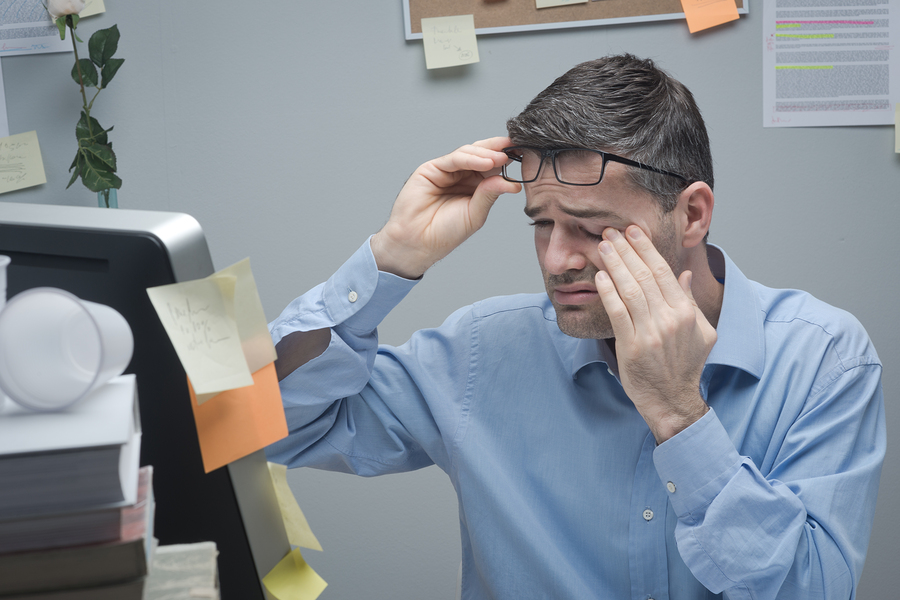Why Is My Eye Twitching?

Since many people with normal vision and healthy eyes can experience bouts of muscle spasms, this is a question I get from patients and friends on a pretty regular basis. That is why this post will highlight common causes and treatments for eye spasms in hopes of giving you the answers you’re looking for.
KEY FACTS:
- It’s not your eye that is twitching, rather it’s your eyelid that is experiencing a slight muscle spasm or twitch. More often than not, it’s the lower eyelid that is experiencing it as opposed to the upper eyelid.
- The medical term for it is Myokymia, which means an involuntary, spontaneous, localized quivering of a few muscles.
- Most eye spasms pass in a few seconds or minutes. You should be alarmed if the spasms persist for a longer period of time, if they cause pain around the eye area or if you are blinking uncontrollably and it’s impacting your vision.
COMMON CAUSES:
Sleep:
Some studies have shown that the eye needs at least 5 hours of sleep a night to properly replenish and if you are not sleeping enough, your eyes are more likely to experience irritation in the form of dry eyes, inflammation, popped blood vessels in the eye and spasms in the eyelid. Ensuring you get 6-8 hours a night is something to strive for in order to prevent eye twitching and to safeguard your health.
Stress:
Stress is also something to be aware of when you are experiencing twitching in the eyelid. When you are experiencing more anxiety, you produce more epinephrine (also known as adrenaline). This might cause small contractions (spasms) in your one of your eyelids.
Caffeine:
A study published by researchers at York University found that caffeine triggers the release of excitatory neurotransmitters such as serotonin and noradrenaline thereby making muscles and nerves more reactive which might explain eye spasms after consuming a cup of coffee.
TREATMENT OPTIONS:
1) Apply a warm compress to the eye to relieve the muscle tension and monitor your exposure to the causes listed above.
2) It may be time to contact your optometrist to discuss a medical treatment option for prolonged eye twitching and if your vision is being compromised as a result of continuous blinking. In this case, Botox is used to treat muscle spasms around the eye and can be injected by a certified professional.
If you have any more questions about eye spasms, please give us a call or set up an appointment at one of our three locations today!

